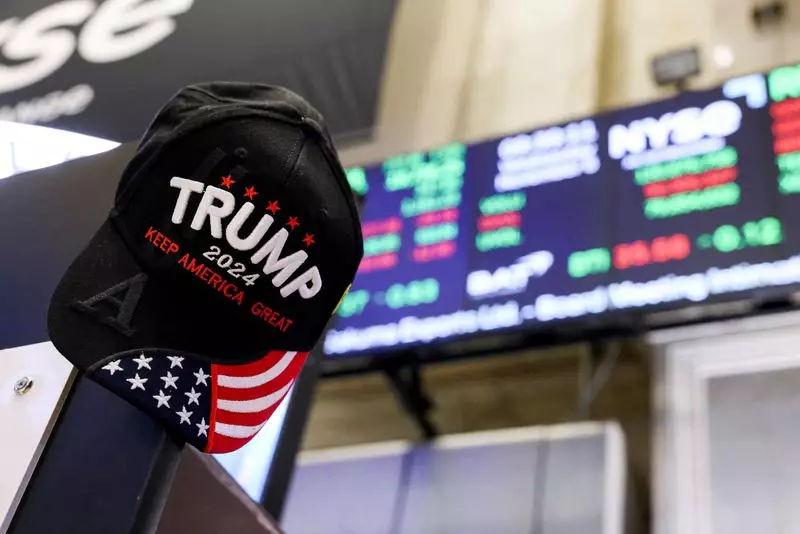The recent nomination of Scott Bessent as Treasury Secretary by President-elect Donald Trump has prompted significant interest among investors and economists alike. This appointment comes at a time of heightened concern over the U.S. government bond market, which has experienced considerable downturns in recent weeks. With Treasury yields rising due to speculations surrounding Trump’s fiscal policies, including potential tax cuts and tariffs, Bessent’s appointment is perceived as potentially restorative to investor confidence.
The bond market’s turbulence reflects anxieties about inflation, rising federal budget deficits, and the overarching implications of Trump’s economic strategy. Many have speculated that the nature of Bessent’s economic policies and strategies could either exacerbate or alleviate these concerns. Given that this role directly influences economic, regulatory, and international affairs, the financial world is closely monitoring how Bessent will approach the complexities of his position.
Bessent is not a stranger in the world of finance; his reputation as a fiscal conservative presents him as a fitting choice for this critical cabinet position. His past advocacy for tax reform and deregulation indicates a potential shift towards policies that could promote economic growth while maintaining fiscal discipline. Comments from various market analysts suggest that there is a relief felt on Wall Street following this nomination, especially considering the anxiety surrounding Trump’s earlier potential selections.
Michael Purves, CEO of Tallbacken Capital Advisors, remarked on the importance of Bessent’s appointment, highlighting that the market was reacting to the uncertainty of Trump’s choices. The pattern of rising 30-year bond yields following the election showcased the dread of an increasing national deficit under Trump’s policies. However, Bessent’s fiscal conservatism is seen as a beacon of hope for a more disciplined economic approach.
Investors are inevitably intertwined with the dynamics of Treasury policies due to their effect on bond markets. The benchmark U.S. 10-year yield recently hit a five-month high, attributed to market reactions to speculation about potential gross mismanagement of economic policies. However, with a Treasury Secretary like Bessent at the helm, there is an optimistic outlook for a balanced economic discourse.
Christopher Hodge, an economist at Natixis, posited that Bessent’s market-focused viewpoint could be instrumental in preventing detrimental trade policies. With Trump’s history of proposing restrictive tariffs, the fear of an escalating trade conflict has pressured the market. An advisory role from a Secretary who recognizes the interconnectedness of global economies could play a vital role in redirecting the administration from isolationist policies that could harm global financial stability.
Despite the optimism surrounding Bessent’s appointment, challenges remain. Investors expect the new Treasury Secretary to tackle multi-faceted issues ranging from managing U.S. government debt to navigating recessions or financial crises. The selection pressure mounts when considering Trump’s unabashed stance on potential Fed intervention, which raises further questions about the independence of the Federal Reserve.
The potential influence Trump may exert over the Federal Reserve—demonstrated by his statements suggesting the president should play a role in Fed decisions—could complicate Bessent’s tenure. Any shift away from the traditional autonomy of the Fed may alarm investors, compelled by a desire for stability amidst uncertainty.
Scott Bessent’s appointment as Treasury Secretary signifies a critical turning point for U.S. economic policy under the Trump administration. While the initial response from the markets has been favorable, the real test lies in Bessent’s ability to navigate through uncharted waters while retaining fiscal responsibility. The interplay between maintaining Federal independence and advising on potentially controversial trade policies will undoubtedly shape both the narrative of his administration and the broader economic landscape.
Overall, the implications of Bessent’s nomination resonate far beyond immediate bond market reactions; they signify a cautious optimism that the U.S. can balance aggressive economic reforms while simultaneously safeguarding international economic relations. As graduates of financial strategy observe this development, the true measure of success will unfold in the months to come.

